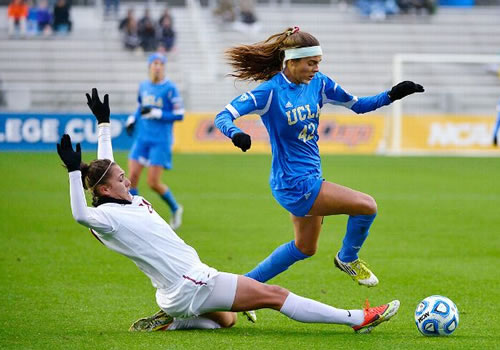Academic self-efficacy is student-athletes’ feelings that they can be successful in their academic pursuits. For example, the degree to which student-athletes feel they can master the coursework and skills in their classes, as long as they try.
Across NCAA Divisions, about six in ten student-athletes feel very confident in their academic pursuits. While there are some aspects of academic self-efficacy that student-athletes feel more confident about than others, the majority agree they can be successful academically. For example, about 40% feel mostly confident that they can figure out how to do the most difficult work in their classes. Moreover, roughly seven in ten student-athletes feel very confident that they can complete almost all of their coursework as long as they do not give up. These findings suggest that student-athletes demonstrate persistence in the academic domain.
Key NCAA stakeholders also discuss “excellence” on and off the playing field as a desired student-athlete outcome. Many of them speak to the importance of helping student-athletes identify an academic major and be successful in that endeavor as they build toward a future career.

Quick Facts
- An example of academic self-efficacy is the degree to which student-athletes feel they can master the skills taught in their classes, as long as they try.
- About 40% of NCAA student-athletes feel mostly confident in their ability to do the most difficult work in their classes.
- Key NCAA stakeholders acknowledge the importance of helping student-athletes be successful in their efforts to build toward a future career outside of athletics.
Study Partners






